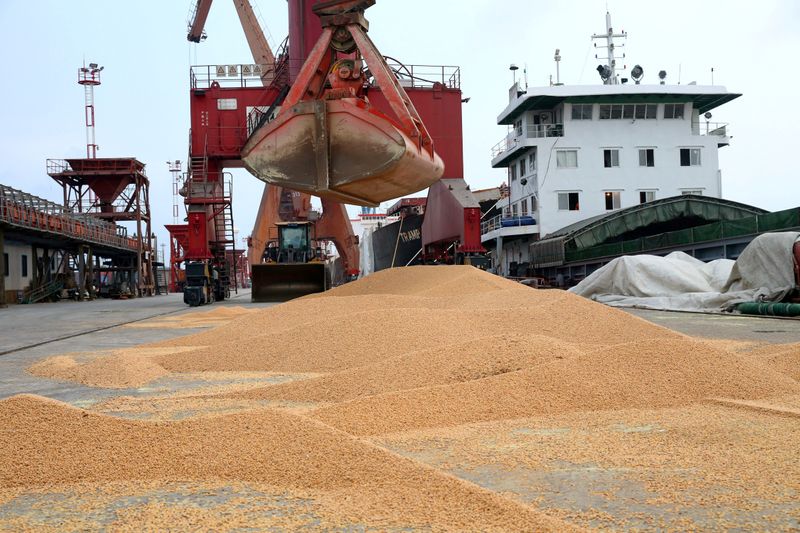By Hallie Gu and Dominique Patton
BEIJING (Reuters) - China's soybean imports rose 18% this year through July versus a year ago, as large volumes of soybeans bought cheaply from top supplier Brazil arrived in the country, according to data from the General Administration of Customs.
China, the world's biggest buyer of soybeans, brought in 10.09 million tonnes of beans last month, up from 8.63 million tonnes in July 2019 but below June's record 11.16 million tonnes, the customs data showed.
"Brazil had record high soybean output this year, while the real (currency) depreciated. Brazilian beans are cheap and crush margins are great, so crushers made purchases very actively," said Xie Huilan, analyst at agriculture consultancy Cofeed.
Exports from Brazil have picked up after March as the weather there improved.
Soybean imports surged 17.7% in the first seven months of the year, compared to the same period in 2019, to 55.14 million tonnes.
(GRAPHIC - China soybean imports: https://fingfx.thomsonreuters.com/gfx/ce/yxmvjrxwmvr/ChinaSoybeanImportsthoughJuly2020.png)
Soybean and soymeal inventories in China have risen significantly after hitting record lows earlier this year as the Brazilian cargoes replenished supplies.
Some Chinese soybean crushers, who earlier this year had to curb operations due to short supplies, are now struggling with bulging inventories. But crushers and traders expect the problem to be short-lived given strong demand from the livestock sector.
"Inventories are rising mainly because feed producers bought(meal) for use in August in advance, thus slowing delivery at the beginning of the month," said a manager with a crusher in southern China on condition of anonymity.
"We expect stocks to start falling next week, as demand is going strong."
Soybean shipments were expected to remain large in coming months, on good profits and healthy demand from the livestock sector, traders and crushers said.
China has been working to boost the country's pig production after the deadly African swine fever outbreaks, first discovered in the country in August 2018, decimated its massive herd.

China imported 956,000 tonnes of vegetable oils in July, down 6.1% from the previous month.